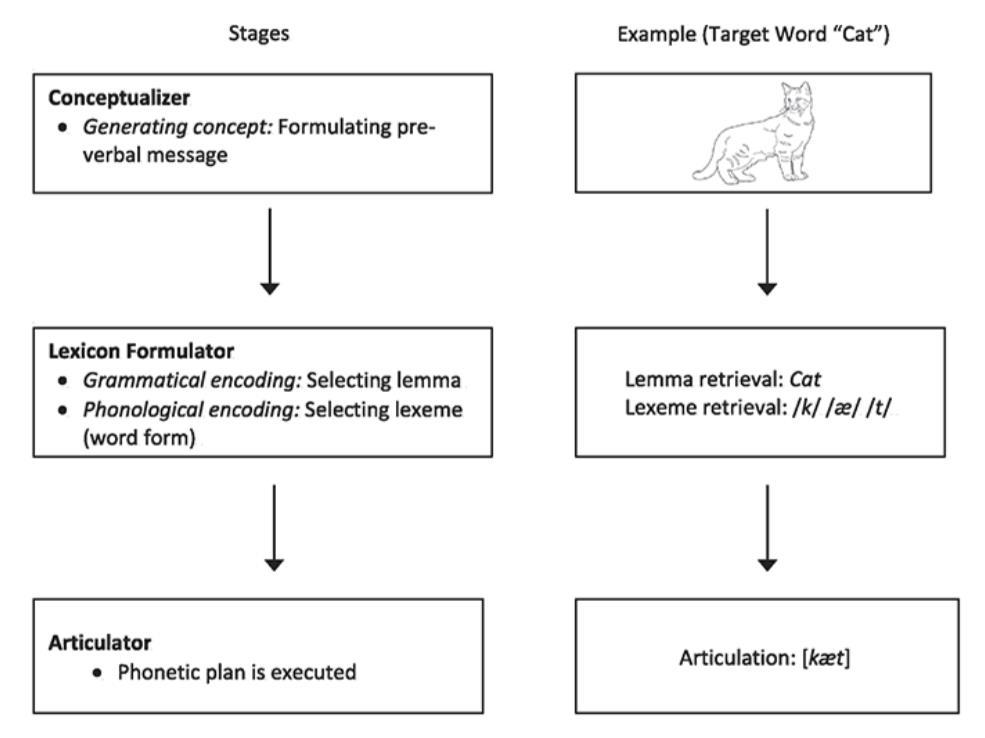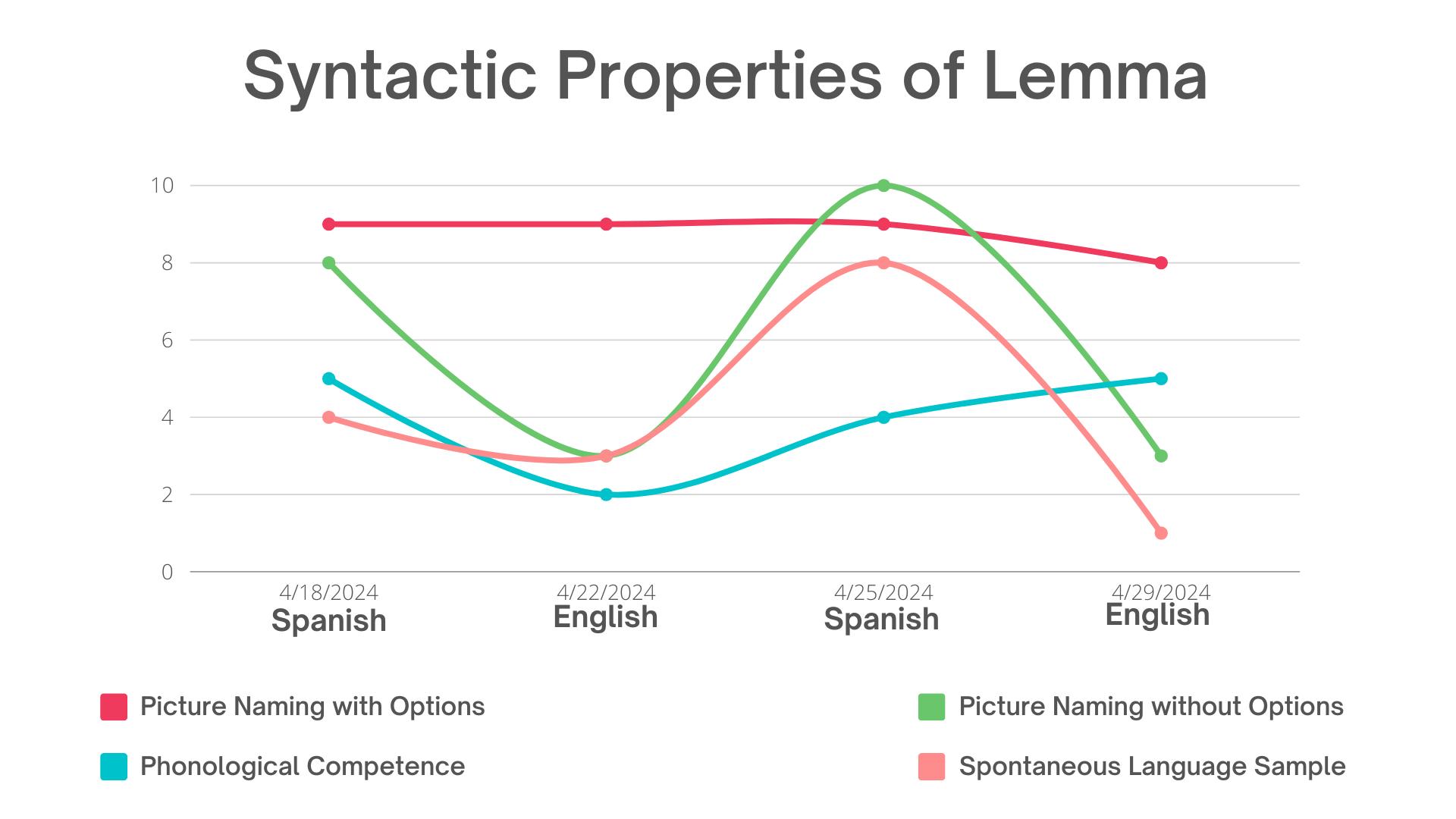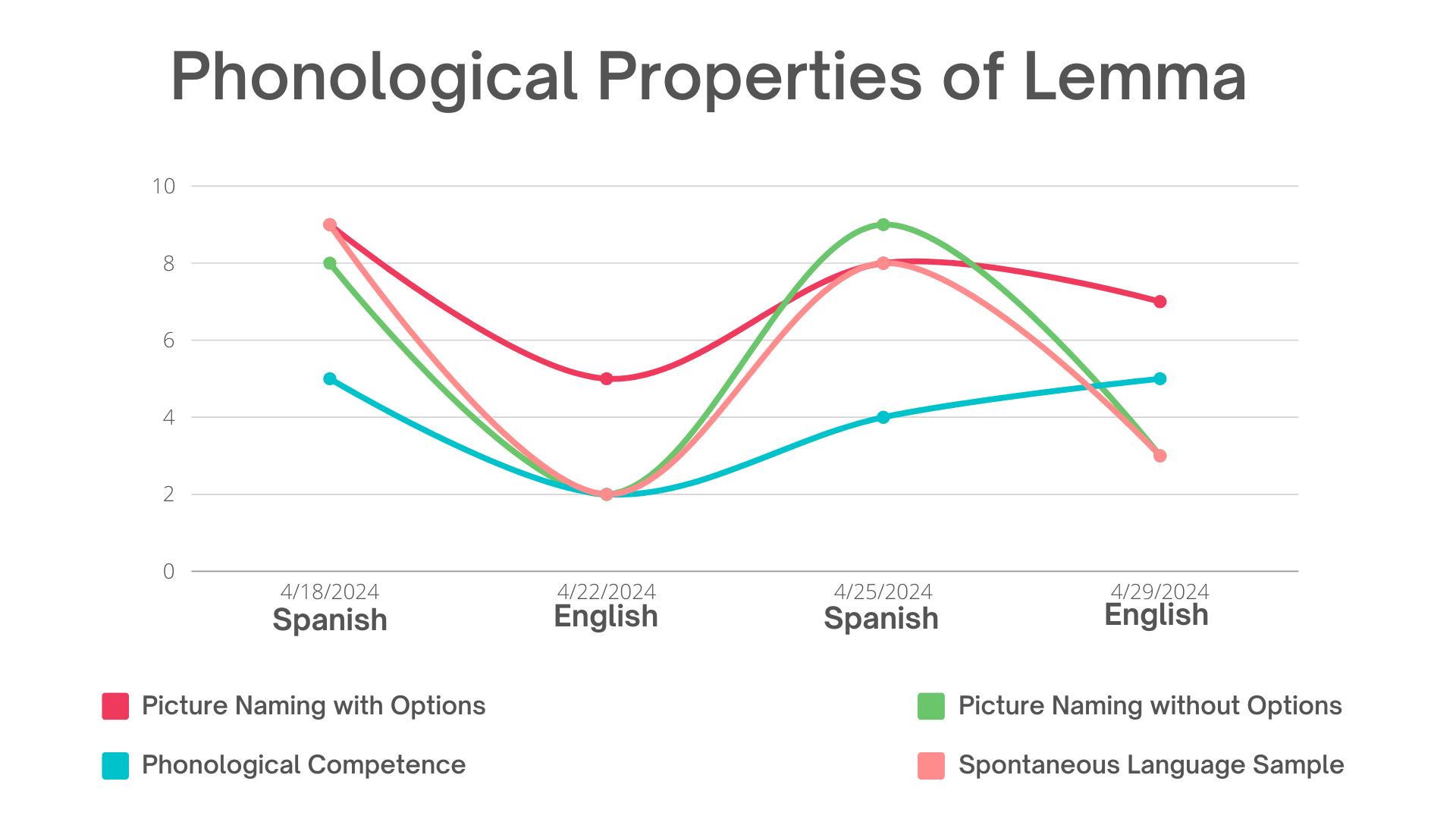A STUDY OF LEXICAL - SEMANTIC CONTROL IN BILINGUAL APHASIA
Jenna Miller - Honors Thesis Patrizia Bonaventura, MA Thesis Advisor Department of Speech-Language and Hearing Sciences, Hofstra UniversityMethods
Abstract
The present study analyzes the lexicalsemantic competence in a Spanish-English bilingual speaker with aphasia
The speaker was tested on presence of lexical concepts, properties of lemmas, and presence of articulation
The results show that the most functional language was Spanish, and that in English most aspects of lexical-semantic control showed a diminished level of competence
Introduction
Lexical-semantic control :
- The ability of a speaker to match the concept of a word, or the idea that the word describes, to the word itself (Levelt, 1989)
- The ability to retrieve the lexical meaning of a word
Aphasia can result from impairments in representing and/or retrieving lexical meanings, as well as in accessing specific words
The thesis focuses on determining if either of these deficits are present in the aphasia symptoms of the bilingual patient, by testing lexical-semantic functions
Additionally, it aims to explore if lexicalsemantic abilities are differentially affected in the dominant language (L1) versus the nondominant language (L2) in bilingual speakers with aphasia.

Research questions
1) Does the lexical semantic deficit in aphasia consist in an impairment of:
(a) the representation of the lexical concept and/or of its retrieval (at the Conceptualization level), or
(b) in the formulation of the lemma associated with the lexical concept and/or in the retrieval of those lemmas? (at the Formulator level)
2) Are the abilities in bilingual patients with aphasia affected differently in L1 or in L2?
3) Does the lexical-semantic deficit depend on the language used in the task?
Participant
A Hispanic male, age 53, with dominant Spanish language (L1) and non-dominant English language (L2)
He has aphasia with both expressive and receptive deficits
In 2016 he had a stroke on the left side of the brain, and he has been in therapy since 2018 A survey testing his lexical-semantic competence was administered via Zoom to him

Data and analysis
Data was collected using a survey created on the basis of the Bilingual Aphasia Test (BAT) and the Psycholinguistic Assessments of Language Processing in Aphasia (PALPA)
- IRB approval # 20240405-SLH-HPHS-MIL
The survey consists of the following tasks:
1. Matching a picture to a word.
2 One-step commands
3. Picture-naming task.
4 Pointing to two pictures to distinguish meanings.
5 Adding a word to a category
6 Responding to simple everyday questions and questions about language use



Acknowledgments
We thank the Speech-Language-Hearing Clinic at the Saltzman Center for the collaboration during my observations and recordings of the patient with aphasia, and in particular to my supervisor, Suzanne Shelley
I wish to also thank my Thesis Committee: Dr Patrizia Bonaventura, Prof Wendy Silverman and Dr Jason Davidow

Results
The graphs in figures 2-5 showed that overall, the client’s ability to display understanding of lexical concepts and lemmas as a whole was higher in Spanish than in English However, individual tasks displayed different results per language While lexical concepts remained mostly present in Spanish, they tended to be impaired in English for most tasks
More semantic and syntactic properties were observed in Spanish as well, but for the picture-naming task with options given and the phonological competence task, there was not much difference between the semantic and syntactic properties of the lemmas present in both languages
Discussion
The results obtained by the observation of the aphasic patient provided evidence supporting the hypotheses:
1. the deficit seems to pertain to the formulation of the lemma associated with the lexical concept and/or to the retrieval of those lemmas. The concepts related to the words seem to be preserved both in Spanish (L1) and English (L2).
2. the lexical-semantic abilities seemed to be affected differently in L1 and in L2: in fact, the patient provided more correct responses in the dominant language (Spanish) than in the non-dominant language (English)
3. the deficits in the lexical-semantic abilities seem to depend on the language used in the tasks: in fact, more incorrect responses were provided in the tasks administered in English than in those given in Spanish.
Conclusions
Overall, the results provide much evidence to support all three hypotheses. A limitation of the study is the small sample size, as well as that the client was receiving external treatment throughout the 11-day testing period, which may have affected his responses. Further studies should observe a larger number of bilingual patients with aphasia to obtain more data to determine how lexical-semantic control is affected by this disorder


Kay, J., Lesser, R. and Coltheart, M. (1992) Psycholinguistic Assessments of Language Processing in Aphasia (PALPA) Lawrence Erlbaum
Levelt, W J M (1989) Speaking: From Intention To Articulation MIT Press
Paradis, M and Libben, G (1987) The Assessment of Bilingual Aphasia Psychology Press, Taylor and Francis References
Fig. 2 Fig. 3 Fig. 4 Fig. 5 Fig. 6 Figure 1. Diagram of Levelt’s word production model (Adapted from Levelt, 1989)